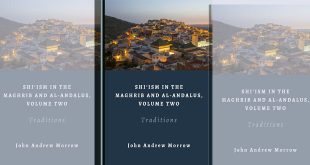The “Muslims in Interwar Europe and European Trans-cultural History” concluding conference shall invite speakers to place the position of Muslims in interwar Europe in a wider historical context by focusing on the religious, political, intellectual and social roles played by “global” Muslim actors in world history during the two world wars and the interwar period.
As the ERC Starting Grant Project “Neither visitors, nor colonial victims: Muslims in Interwar Europe and European Trans-cultural History” nears its end, the concluding conference shall invite speakers to place the position of Muslims in interwar Europe in a wider historical context by focusing on the religious, political, intellectual and social roles played by “global” Muslim actors in world history during the two world wars and the interwar period. Like their historical peers, Muslims had their sense of shared global goals which led transnational Muslim intellectuals and activists to create their networks; and draw on their own political, religious, social and cultural aspirations that frequently crossed their national borders in this crucial period of time. Considering Muslim “transnationalism”, even by necessity and not primarily by design, is a well-suited tool to understand the transformation of Muslim identities and their imagined collective past in world history before the decolonialization and the building of nation- states.
The period under investigation between 1914-1945 was characterized by tensions, military turmoil, political unrest, monumental sterling balances and revolts, but also by the rise of various kinds of internationalisms that aimed to foster relations and exchanges across national and regional boundaries. This conference will zoom in on various Muslim practices and responses to such major world events which had a great impact on the Muslim world in the human global history as well. Take for example, the Muslim military participation in both world wars, the collapse of the Ottoman Empire and abolishing the Caliphate, the dominance of pan- Arabist and pan-Islamist movements, the emergence of new national borders, as well as the consolidation of Islamic congresses and new institutions. On another level, in order to achieve their goals, pan-Islamists were keen on associating themselves with their counterpart pan- Asianists in India, China and of course Japan.
We shall invite scholars who look at how global Muslim collective and individual actions cut across national boundaries in the interwar world; and how Muslim historical actors could be legitimately placed in world “transnational history”. How were the Muslim political, religious, social and intellectual forms of activism shaped and varied? In what way were Muslim global figures, networks and institutions affected by the changing international world order of the war times and interwar eras?
We are seeking contributions from different disciplines by junior and senior researchers dealing with the Muslim global history of the period 1914-1945 in the wider sense. We aim to discuss new methodological perspectives about how intellectual Muslim networks and figures (including minor or less prominent figures) tried to position themselves and their actions in the world history of that era.
Interested applicants are kindly invited to submit an abstract of maximum 500 words and short CV (one page) to Umar Ryad (amr.ryad@kuleuven.be) no later than 26 October 2018. After the Organizing Scientific Committee’s selection, the accepted applicants will be notified via email by 10 November 2018. As we would like to have interactive discussions and plan to publish the paper, we expect your draft paper by 15 March 2019.
This symposium is generously funded by the ERC Starting Grant “Neither visitors, nor colonial victims: Muslims in Interwar Europe and European Trans-cultural History” (Project Reference: 336608). We will be happy to cover accommodation and economy travel expenses for invited presenters.
Important Dates
Conference Dates: 27-29 March 2019
Organizer: Arabic and Islamic Studies, Faculty of Arts
Venue: University of Leuven (Belgium)
Organizing Scientific Committee:
Prof. Dr. Kim Christiaens (KADOC)
Dr. Hussam Eldin Ahmed ( Leuven)
Prof. Dr. Idesbald Goddeeris (Leuven)
Prof. Dr. Martin Kohlrausch ( Leuven)
Prof. Dr. Patrick Pasture (Leuven)
Prof. Dr. Umar Ryad (Leuven)
Dr. Mehdi Sajid (Utrecht)
ERC Starting Grant : Neither visitors, nor colonial victims: Muslims in Interwar Europe and
European Trans-cultural History (336608) ; Funded under: FP7-IDEAS-ERC
 Ijtihad Network Being Wise and Faithful Muslim in the Contemporary World
Ijtihad Network Being Wise and Faithful Muslim in the Contemporary World
